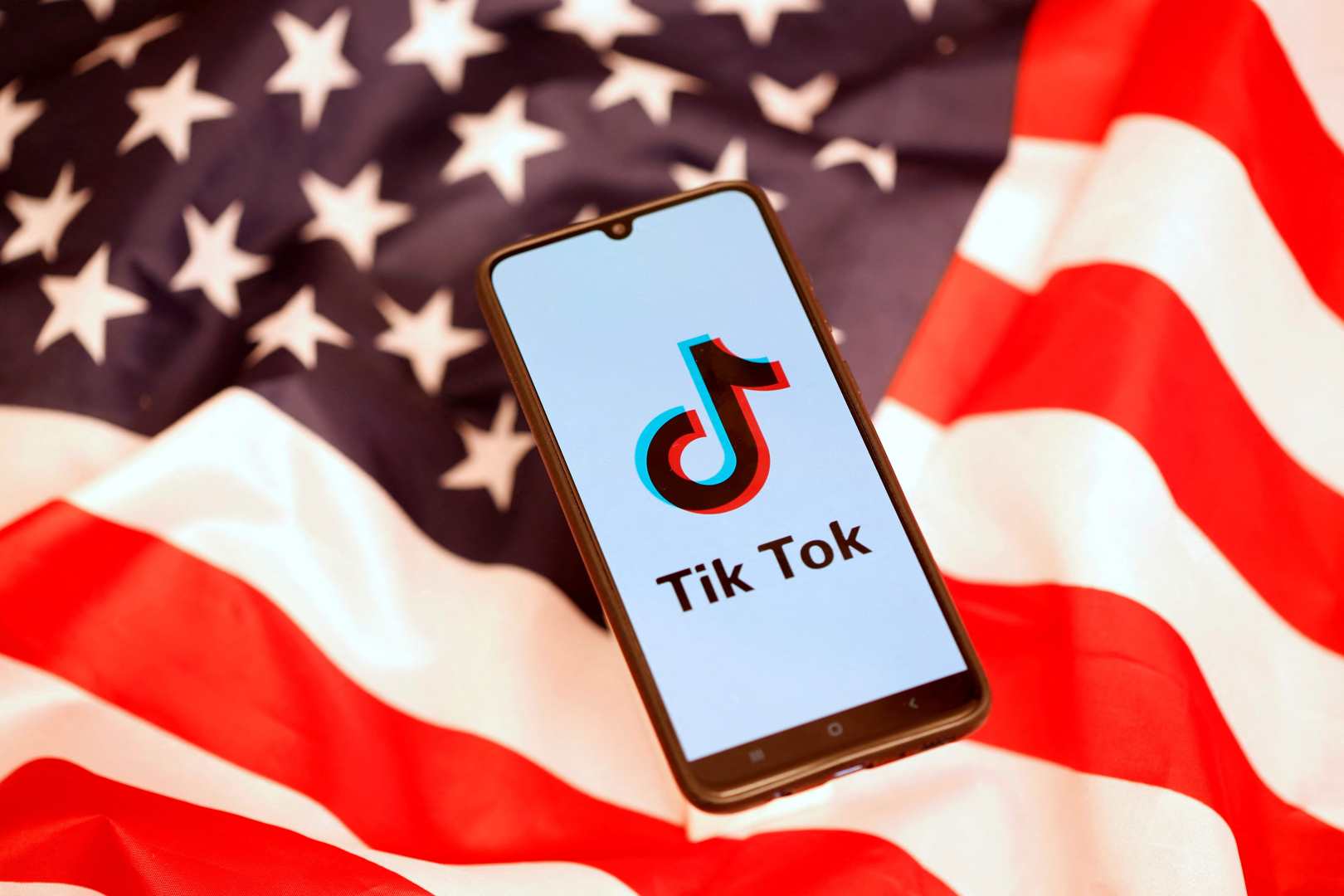
Commentary
-
Our commentary partners will help you reach your own conclusions on complex topics.
Calls for banning TikTok seem to be one of few items Democrats and Republicans can agree on these days. And now comes the RESTRICT Act, a bipartisan piece of legislation introduced by Sen. Mark Warner (D-VA) that’s making its way through Congress. Also known as the TikTok ban, the Act gives power to the U.S. Department of Commerce to ban digital products from six foreign adversaries.
Some analysts, like Straight Arrow News contributor Ben Weingarten, are concerned the language is too broad and could lead to unintended consequences.
Banning TikTok — an alleged tool of Chinese Communist Party surveillance and data harvesting, and definitively a tool of its information warfare, masquerading as a harmless dance video proliferator — would undoubtedly be in our national interest. But the highly touted bill purportedly aimed at banning the app, the bipartisan RESTRICT Act, raises concerns that the cure may be worse than the disease if it cures it at all.
Key language in the bill would seem to make lawful the very lawless targeting of domestic dissent under which Americans have suffered in recent years. In fact, there’s a case to be made that entire U.S.-based platforms, including Twitter, could end up nuked under the bill.
The RESTRICT Act empowers the Commerce Secretary to “review and prohibit certain transactions between persons in the United States and foreign adversaries.” Sounds harmless. It calls on the Secretary to target and prevent any of a number of “undue or unacceptable” national security risks arising from a slew of transactions past or present, including “any acquisition…installation, dealing in, or use of any information and communications technology product or service” to which entities tied to China or several other countries, or subject to their jurisdiction, have an interest.What are the national security risks the bill aims to neutralize? According to its text, those stemming from applications, for example, that could: have “catastrophic effects on the security or resilience of the critical infrastructure” of the U.S.; “interfer[e] in…the result or reported result of a Federal election;” or pose a risk of “coercive or criminal activities by a foreign adversary that are designed to undermine democratic processes and institutions or steer policy…in favor of the strategic objectives of a foreign adversary to the detriment of the national security” of the U.S.
Banning TikTok – an alleged tool of Chinese Communist Party surveillance and data harvesting, and definitively a tool of its information warfare, masquerading as a harmless dance video proliferator – would undoubtedly be in our national interest.
But the highly touted bill purportedly aimed at banning the app, the bipartisan RESTRICT Act, raises concerns that the cure may be worse than the disease – if it cures it at all.
Key language in the bill would seem to make lawful the very lawless targeting of domestic dissent under which Americans have suffered in recent years.
In fact, there’s a case to be made that entire U.S.-based platforms, including Twitter, could end up nuked under the bill.
The RESTRICT Act empowers the Commerce Secretary to “review and prohibit certain transactions between persons in the United States and foreign adversaries.”
It calls on the Secretary to target and prevent any of a number of “undue or unacceptable” national security risks arising from a slew of transactions past or present, including “any acquisition…installation, dealing in, or use of any information and communications technology product or service” to which entities tied to China or several other countries, or subject to their jurisdiction, have an interest.
What are the national security risks the bill aims to neutralize?
According to its text, those stemming from applications, for example, that could: have “catastrophic effects on the security or resilience of the critical infrastructure” of the U.S.; “interfer[e] in…the result or reported result of a Federal election;” or pose a risk of “coercive or criminal activities by a foreign adversary that are designed to undermine democratic processes and institutions or steer policy…in favor of the strategic objectives of a foreign adversary to the detriment of the national security” of the U.S.
Let’s consider a hypothetical if the RESTRICT Act were to pass.
Imagine a U.S.-based social media platform where Americans are calling for repealing the RESTRICT Act. At the same time, foes, including China, by way of its mouthpieces, are doing the same. Might authorities conclude these ideas could kill the bill, leaving America open to “catastrophic effects on…critical infrastructure” – since our adversaries are spewing the same propaganda, pushing a return to the infrastructure-threatening, pre-RESTRICT Act world?
Now imagine that on that same platform, Americans are posting memes instructing people to vote for congressmen or even presidential candidates by texting fake phone numbers, and that thousands might be messaging those numbers. Might authorities believe the platform is being used to “interfer[e] in…the result…of a Federal election?”
Lastly, imagine Americans are using the platform to raise questions about America’s continued involvement in the Russo-Ukrainian War. Russian mouthpieces are doing the same. Russians have been accused of engaging in criminal influence efforts using social media platforms before, ones allegedly aimed at impacting our politics. Might authorities conclude the platform poses a risk of enabling “criminal activities by a foreign adversary…designed to…steer policy in favor of the strategic objectives of a foreign adversary” by getting Americans to pressure their leaders to curtail American support for the war?
“But,” you might ask, “why would this platform be scrutinized under the RESTRICT Act if it’s U.S.-based?”
Well, remember the bill covers any of myriad transactions in which a foreign adversary or affiliated entity is involved, or to which it is subject to the adversary’s jurisdiction, “including through an interest in a contract for the provision of the technology or service” in question.
Is it possible then that investigators might find links, however tenuous, between the company and a foreign adversary – like, say, that it’s taken a small investment from a person or entity that can be linked to an adversary government, or a contractor otherwise affiliated with, or operating under the jurisdiction of an adversary government?
This hypothetical is quite real. On Twitter you’ll find a whole raft of content critical of the RESTRICT Act.
On Twitter, Douglass Mackey tweeted the kind of meme described – he faces up to 10 years in prison for it. On Twitter, you’ll find many critics of U.S. involvement in the Russo-Ukrainian War – on the very platform Russians used to allegedly “commit federal crimes while seeking to interfere in the United States political system” during the 2016 election.
Meanwhile, among the co-investors in Elon Musk’s take private of Twitter
was cryptocurrency exchange Binance, a company initially based in China. This is to say nothing of Musks’s more direct ties to China through Tesla.
The Biden administration has had Musk in its sights since he became interested in purchasing Twitter. It reportedly won’t be investigating that purchase under existing authorities.
But might it under a RESTRICT Act that the White House has championed?
Remember, this bill comes amid an effort to crush dissenting speech that started with the targeting of foreign influence operations on social media and ended with the targeting of domestic wrongthink on all manner of contentious issues there.
If Congress is serious about combatting the CCP, rather than granting administrations powers to silence domestic opponents in CCP-like fashion, it should look towards any of the
more narrowly-tailored and straightforward bills sitting before it, over the RESTRICT Act.
-
Trump is right, Palestinians must be relocated out of Gaza
On Saturday, Feb. 1, U.S. President Trump spoke with Egyptian President Abdul Fatah el-Sisi, urging him and Jordan’s King Abdullah II to accept at least 1.5 million Palestinian survivors of the war in Gaza. Critics have attacked the proposal as tantamount to forced displacement and ethnic cleansing — Donald Trump, in his own words, suggested… -
Trump’s Jan. 6 pardons aim to restore liberty, justice
President Trump has defended his decision to issue pardons and halt prosecutions for the more than 1,500 individuals charged in connection with the Jan. 6, 2021 Capitol attack. The pardons included violent extremists who had been convicted of assaulting law enforcement officers and of plotting sedition against the United States. Some Republicans — and even… -
Trump, Congress must protect First Amendment
During the COVID-19 pandemic, federal government agencies began corresponding with private social media companies like Facebook to regulate sensitive public health information and to suppress certain COVID-19 misinformation which they believed could present an existential threat to U.S. public health. Some Americans felt that this relationship went too far, however, saying that it violated the… -
Is Meta’s free speech overhaul a power play or real change?
On Jan. 7, Meta CEO Mark Zuckerberg announced major changes to the company’s content moderation policies. He pledged to “get rid of fact-checkers and replace them with Community Notes similar to X.” Supporters of Zuckerberg’s pivot view this as a win for the First Amendment, promoting more free expression on the platform. Critics, however, argue… -
Trump must confront jihadism and Islamist supremacism
At least 14 revelers celebrating New Year’s on Bourbon Street in New Orleans have died after 42-year-old U.S. Army veteran Shamsud-Din Jabbar used a rented Ford pick-up truck to run over as many civilians as he could. The FBI is classifying this as a deliberate act of terrorism. The suspect, heavily armed and wearing body…
Latest Stories
-
 AP Images
AP Images
Student protests erupt in LA over Trump administration’s immigration policies
-
 Getty Images
Getty Images
US officials receptive to El Salvador prison offer
-
 Getty Images
Getty Images
Quarterbacks Patrick Mahomes, Jalen Hurts, prepare for Super Bowl rematch
-
 Getty Images
Getty Images
Musk adds companies to lawsuit challenging X ad boycott
-
 Getty Images
Getty Images
FBI agents sue Trump DOJ over list of agents involved in Jan. 6 cases
Popular Opinions
-
In addition to the facts, we believe it’s vital to hear perspectives from all sides of the political spectrum.
Latest Opinions
In addition to the facts, we believe it’s vital to hear perspectives from all sides of the political spectrum. We hope these different voices will help you reach your own conclusions.
The opinions published in this section are solely those of the contributors and do not reflect the views of Straight Arrow News.





















Latest Commentary
We know it is important to hear from a diverse range of observers on the complex topics we face and believe our commentary partners will help you reach your own conclusions.
The commentaries published in this section are solely those of the contributors and do not reflect the views of Straight Arrow News.
Dr. Frank Luntz
Pollster and Political Analyst‘A disturbing pick’: Americans debate Musk, Trump’s cabinet picks
‘Dysfunctional’: Americans share criticisms of Congress
‘Instill optimism’: Americans on how future generations can succeed